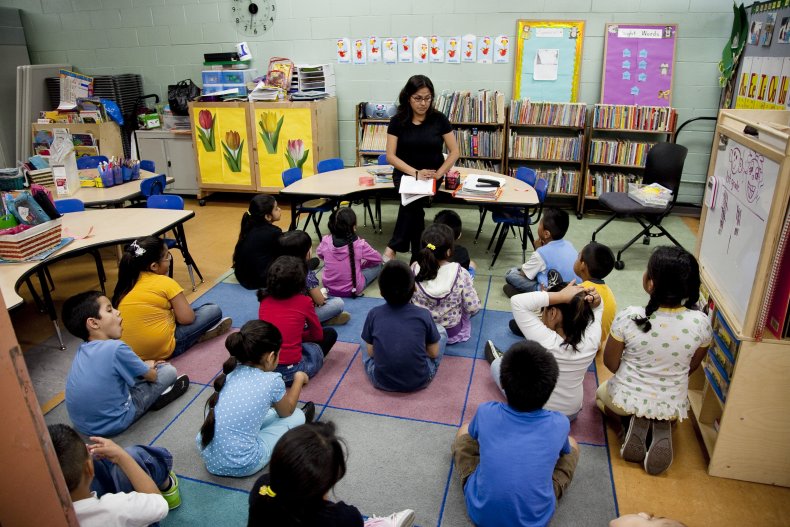One-Third of U.S. Child Care Workers Face Food Insecurity Despite Large Demand for Work
BY EMMA MAYER ON 1/26/22
A study done by the Center for Early Childhood Innovation and South Side Early Learning showed that about one-third of child care workers in the U.S. experienced food insecurity in 2020.
Food insecurity, or the lack of access to consistent meals, is monitored by the Department of Agriculture, and a report summary for 2020, which came out in September of last year, showed that 10.5 percent of U.S. households were food insecure.
The rate of food insecurity in people who work in child care was 8 to 20 percent higher than the national average, according to study researchers.
In Texas and Washington state, 42 percent of all child care workers experienced food insecurity, and in Arkansas it was 40 percent.
These food insecurity rates coincide with the very low wages in the profession. Child care workers' average pay is roughly $12.24 per hour, according to the News and Tribune.
"Early childhood degrees are the lowest paid professions of all skilled professions," National Child Care Association Director Cindy Lehnhoff told Newsweek.
Teachers and child care workers have to be qualified for the position, but less and less of them are taking jobs in the field because of the low wages and COVID-19. Day cares and child care centers are struggling to fill teaching positions, as some child waiting lists reach into the hundreds.
The First Five Years Fund (FFYF) works to expand support for child care workers at the federal level, pushing for the support that would come if President Joe Biden's Build Back Better Act is passed in Congress.
"The existential flaws of the child care market have set everyone involved up for failure: parents, provider and the communities who rely on them," FFYF's Charlie Joughin told Newsweek. "While COVID has certainly pushed this crisis to the brink, the underlying issues will remain long after the pandemic is over unless Congress passes significant, sustained reforms and investments to build an early learning system that actually works."
The Build Back Better Act has encountered pushback in terms of how it could affect inflation, but over 50 economists have expressed their support. The legislation would reduce the costs of child care and health benefits, which would mean that child care workers could receive higher wages, according to the FFYF.
"Child care is a specialized, labor-intensive service to provide, and dedicated early educators are literally helping support the healthy development of our nation's children while their parents work," Joughin said. "So long as they can earn more money working fewer hours at Target or Starbucks, America's child care market is headed for collapse."

A study found that 1 in 3 child care workers experienced food insecurity in 2020, amid staff shortages across the U.S. Above, first-grade teacher Elizabeth Chavez's English class in Los Angeles.
TED SOQUI/CORBIS VIA GETTY IMAGES
No comments:
Post a Comment